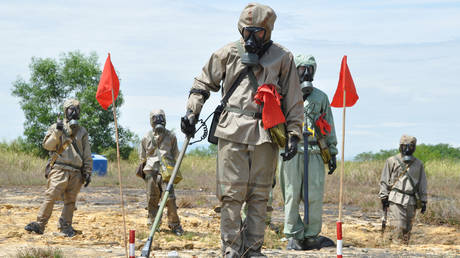
A Paris court has rejected a 2014 complaint brought against 14 companies involved in the production and sale of Agent Orange to the US during the Vietnam War, declaring it does not have jurisdiction to rule over the matter.
The lawsuit in the French court was filed by French-Vietnamese former journalist Tran To Nga. She accused the companies – among them Monsanto and Dow Chemical – of being culpable for the injuries caused to her, her children, and others, as well as for damage to the environment.
However, the case was rejected on Monday, after the court said it did not have jurisdiction to rule over America’s wartime activities in Vietnam, halting the suit seven years after it was filed.
Tran, who covered the conflict, has been supported by non-governmental organizations in her quest to hold companies responsible for manufacturing Agent Orange and providing it to the US military. Those accused in the lawsuit have denied any responsibility for the damage caused in Vietnam, arguing that they cannot be blamed for how the American military used the chemical.
Had Tran been successful, the case would have set a legal precedent for millions of Vietnamese civilian victims to have claimed compensation for health effects caused by exposure to Agent Orange.
Currently, only American, Australian, and Korean military veterans who were exposed to the chemical have been awarded compensation, with America’s Agent Orange Settlement Fund having paid out claims to 52,000 former service members or their survivors, averaging at around $3,800 each.
Agent Orange was deployed across Vietnam by American forces from 1961 to 1971. During a brutal chemical warfare campaign against Viet Cong guerilla fighters, 12 million gallons of herbicide were used to defoliate the ecosystem, thereby exposing the enemy and destroy crops.
The Red Cross of Vietnam estimates that around a million people are disabled or suffer from health problems as the result of their exposure to the chemical. Dioxin, a highly toxic element of Agent Orange, has been linked to birth defects, cancers, and other deadly diseases.
Think your friends would be interested? Share this story!




